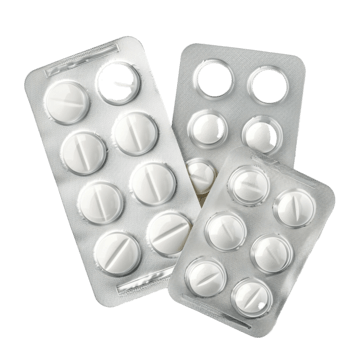Esomeprazole

Esomeprazole 20mg, 40mg
Esomeprazole is a proton pump inhibitor (PPI) that reduces the production of stomach acid, making it effective in treating conditions such as gastroesophageal reflux disease (GERD), peptic ulcers, and excessive stomach acid. By inhibiting the enzyme responsible for acid secretion, esomeprazole helps alleviate symptoms like heartburn and acid reflux, promoting healing of the esophagus and stomach lining. It is often prescribed for short-term and long-term management of acid-related disorders.
Order NowDescription
Esomeprazole is a proton pump inhibitor (PPI) that reduces the amount of acid produced in the stomach. It is commonly used to treat various gastrointestinal conditions, providing relief from symptoms associated with excessive stomach acid.
Uses / Indications
- Gastroesophageal reflux disease (GERD)
- Erosive esophagitis caused by acid reflux
- Zollinger-Ellison syndrome
- Prevention of gastric ulcers in patients taking NSAIDs
- Maintenance treatment of healed erosive esophagitis
- Adjunct therapy for eradication of Helicobacter pylori
Dosage and Administration
Adults:
20 mg to 40 mg once daily for 4 to 8 weeks, depending on the condition being treated.
Children (12 years and older):
20 mg once daily for GERD.
Note: Dosage may vary based on specific medical conditions or physician’s recommendations.
How It Works (Mechanism of Action)
Esomeprazole works by irreversibly inhibiting the proton pump in the stomach lining, leading to a significant reduction in the production of gastric acid. This helps alleviate symptoms of acid-related disorders and promotes healing of the esophagus.
Side Effects
Common side effects:
- Headache
- Nausea
- Abdominal pain
- Diarrhea
Rare/serious side effects:
- Severe allergic reactions (rash, itching, swelling)
- Kidney problems (including acute interstitial nephritis)
- Low magnesium levels (which can lead to muscle spams, irregular heartbeat, or seizures)
Seek medical attention if serious side effects occur.
Precautions / Warnings
- Inform your doctor if you have liver disease, osteoporosis, or are pregnant/breastfeeding
- Use caution when taking with other medications that affect liver enzymes
- Long-term use may increase the risk of certain infections, fractures, and kidney issues
Drug Interactions
Esomeprazole may interact with:
- Warfarin (may increase risk of bleeding)
- Certain antifungals (e.g., ketoconazole, itraconazole)
- Clopidogrel (may decrease its effectiveness)
- Other medications that require an acidic stomach for absorption
Always inform your healthcare provider about any other medications or supplements you’re taking.
Storage Instructions
- Store at room temperature (20°C–25°C / 68°F–77°F)
- Keep away from moisture, heat, and direct light
- Keep out of reach of children
Missed Dose / Overdose
Missed a dose?
Take it as soon as you remember. If it’s almost time for your next dose, skip the missed one. Do not double up.
Overdose symptoms:
- Drowsiness
- Confusion
- Severe headache
- Rapid heart rate
Contact a poison control center or seek emergency medical help immediately.
Contraindications
- Allergic to Esomeprazole or other proton pump inhibitors
- Certain rare genetic conditions that predispose individuals to hypersensitivity to the medication
Brand Names / Alternatives
- Nexium
- Esomeprazole magnesium
- Generic name: Esomeprazole
- Available in both prescription and over-the-counter formulations

